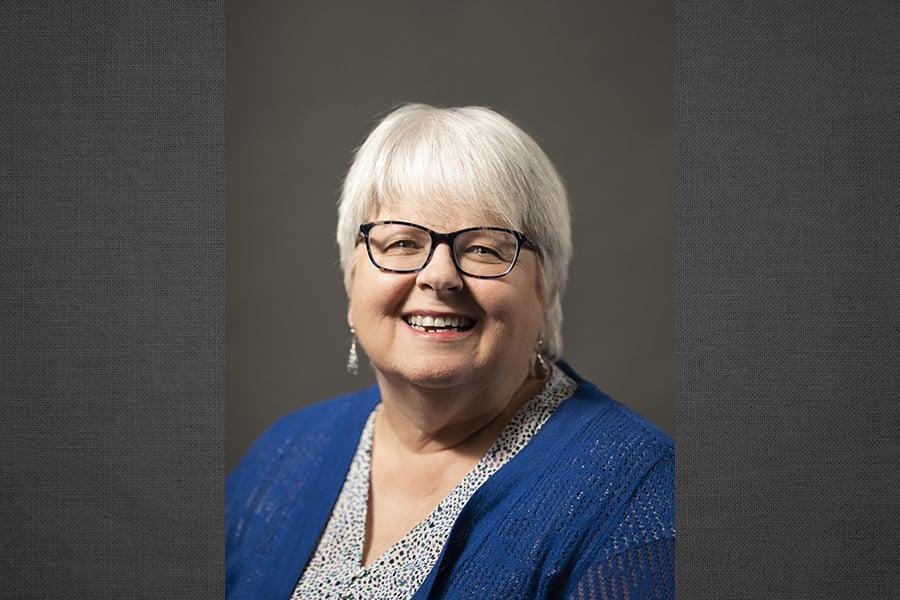Jarvis joins diocesan schools office as learning specialist

Diocesan Learning Specialist Pamela Jarvis (NTC/Juan Guajardo)
FORT WORTH — Public, private, and parochial — Pamela Jarvis has helped students with learning differences in all three school settings during her career, which extends more than two decades.
As the newly hired Diocese Learning Specialist, Jarvis will support the principals and teachers of the 17 Catholic schools in the Diocese of Fort Worth as they meet educational needs of students with learning challenges.
With a master’s degree in special education from Abilene Christian University, Jarvis brings previous experience as a special education teacher in Fort Worth public schools and as the founder and executive director of a small private school for students needing accommodations due to cognitive or motor skill differences.
Since she began the role in August, she’s visited most of the schools and been “overwhelmed by how dedicated and committed the principals and teachers are to their calling.” She also noted that each school has its own “culture and community.”
The diocese, Jarvis explained, would like to provide access to Catholic education for every child. However, school administrators must “do right by each child” and ensure that resources are in place to support the student.
In the last several years, many of the diocesan schools added learning specialists so that students with learning differences such as dyslexia or autism can receive extra help and targeted instruction, resources which are present in public schools but less available in Catholic schools in the past.
In 2021, a grant from the Advancement Foundation funded two dyslexia therapists and additional training for teachers to help children with dyslexia.
“I was pleasantly surprised how many of our [diocesan] schools have that support,” said Jarvis, estimating that about 75 percent of the schools have a full-time or part-time learning specialist.
Teaching a child with learning differences, according to Jarvis, is like being a detective. “How do we unlock; what is the key that is going to open their brain and their body to learn certain things?”
She emphasized the necessity to know the individual child and determine the student’s strengths. “You need to work with them on handling their weakness through their strength. If you’re just hitting the weakness, you are missing out.
“Recognize that each child has a God-given gift for a reason. As a teacher, I love to see that being brought out in the classroom in different ways,” she said, adding that a student who struggles with reading may think three-dimensionally and be a gifted builder.
Teachers, she said, have a toolbox of different ways to teach students who don’t learn in traditional ways. As the diocesan learning specialist, Jarvis can add to the toolbox and share successful ideas between campuses.
Jarvis and learning specialists on campus open the possibility of a classical Catholic education to a wider range of students, she said, which has an impact that lasts far beyond test scores.
She said, “As a diocese, we’re more concerned with their character, and their love of God, their love of people, and serving God in the way He created them. That’s our ultimate goal.”
